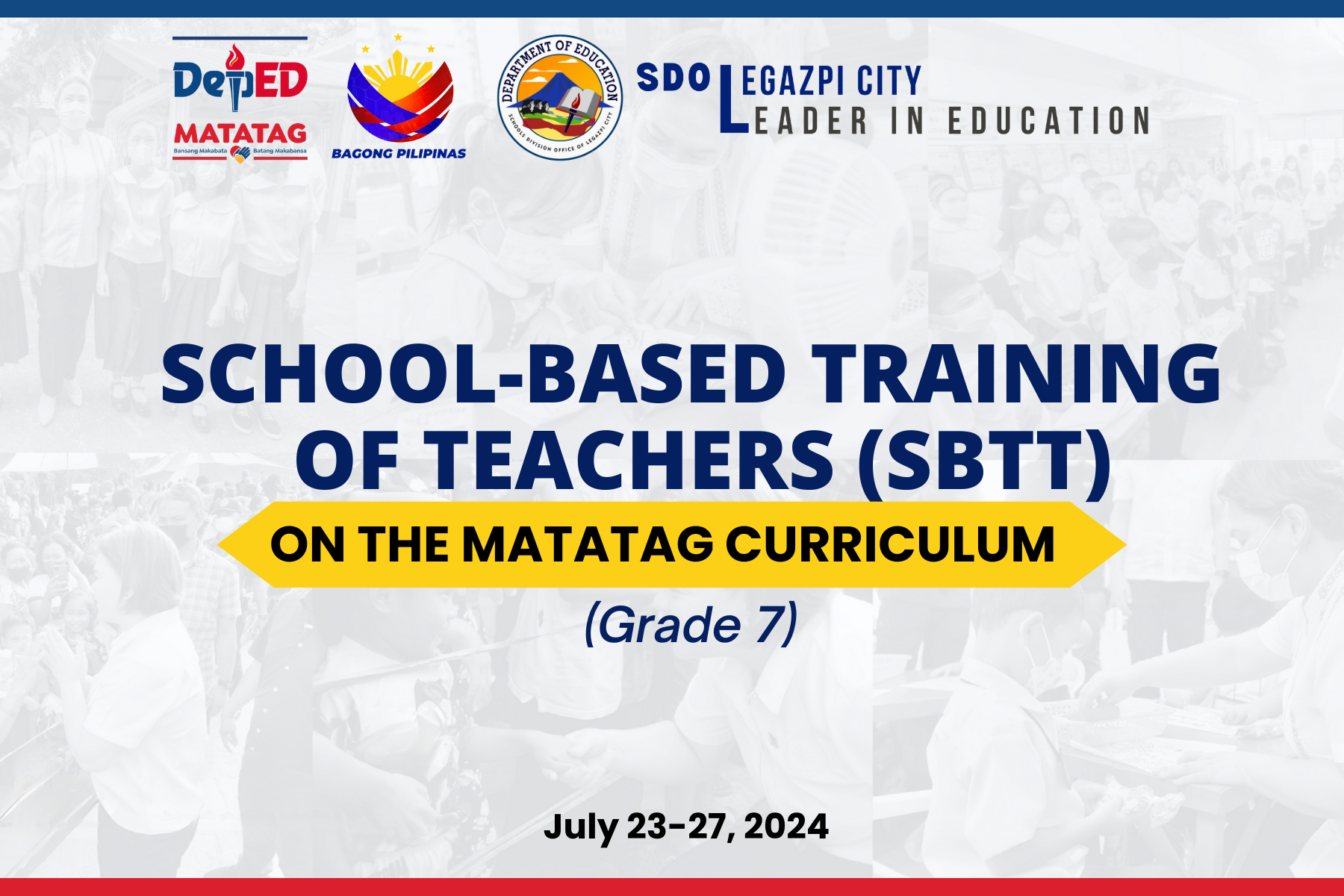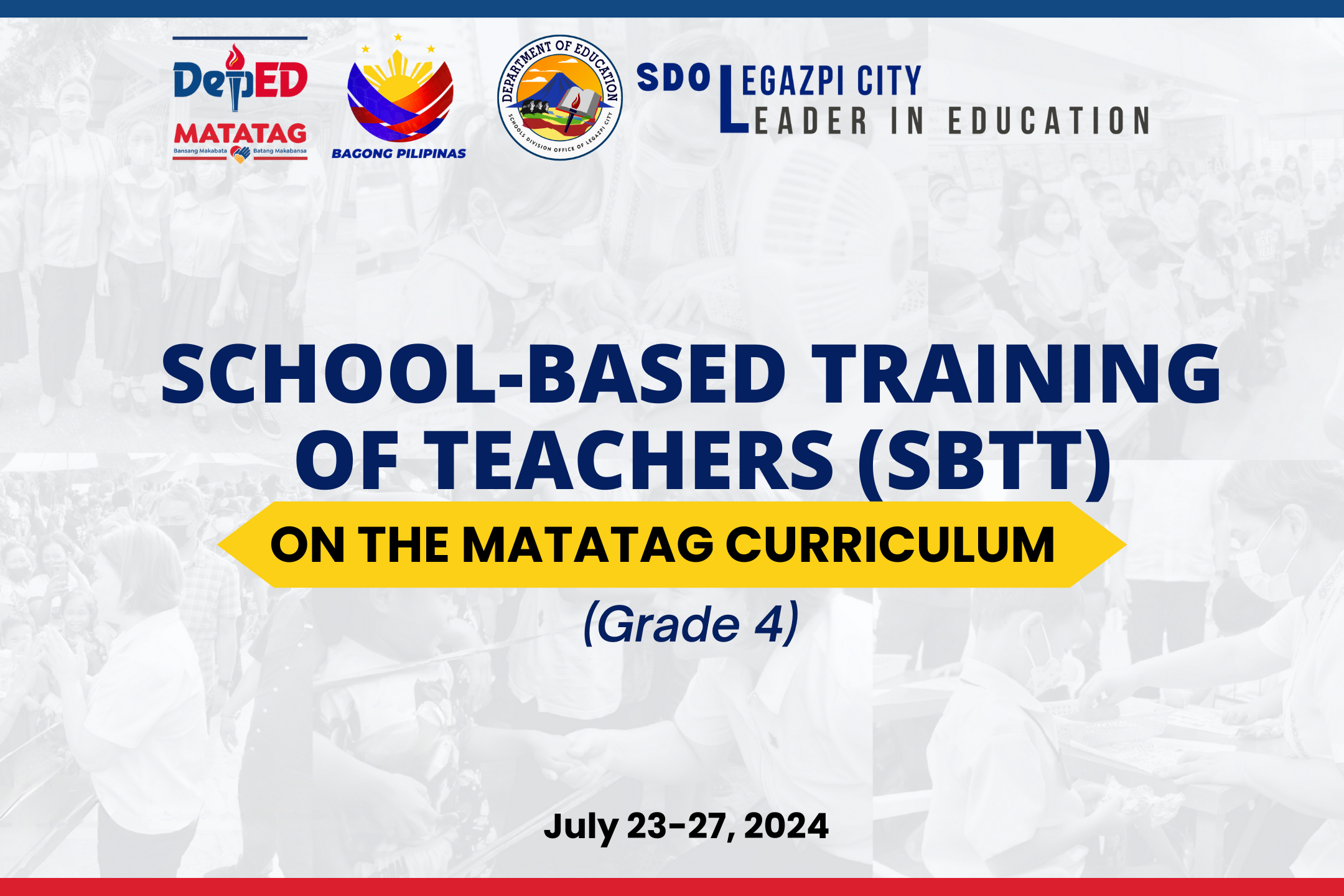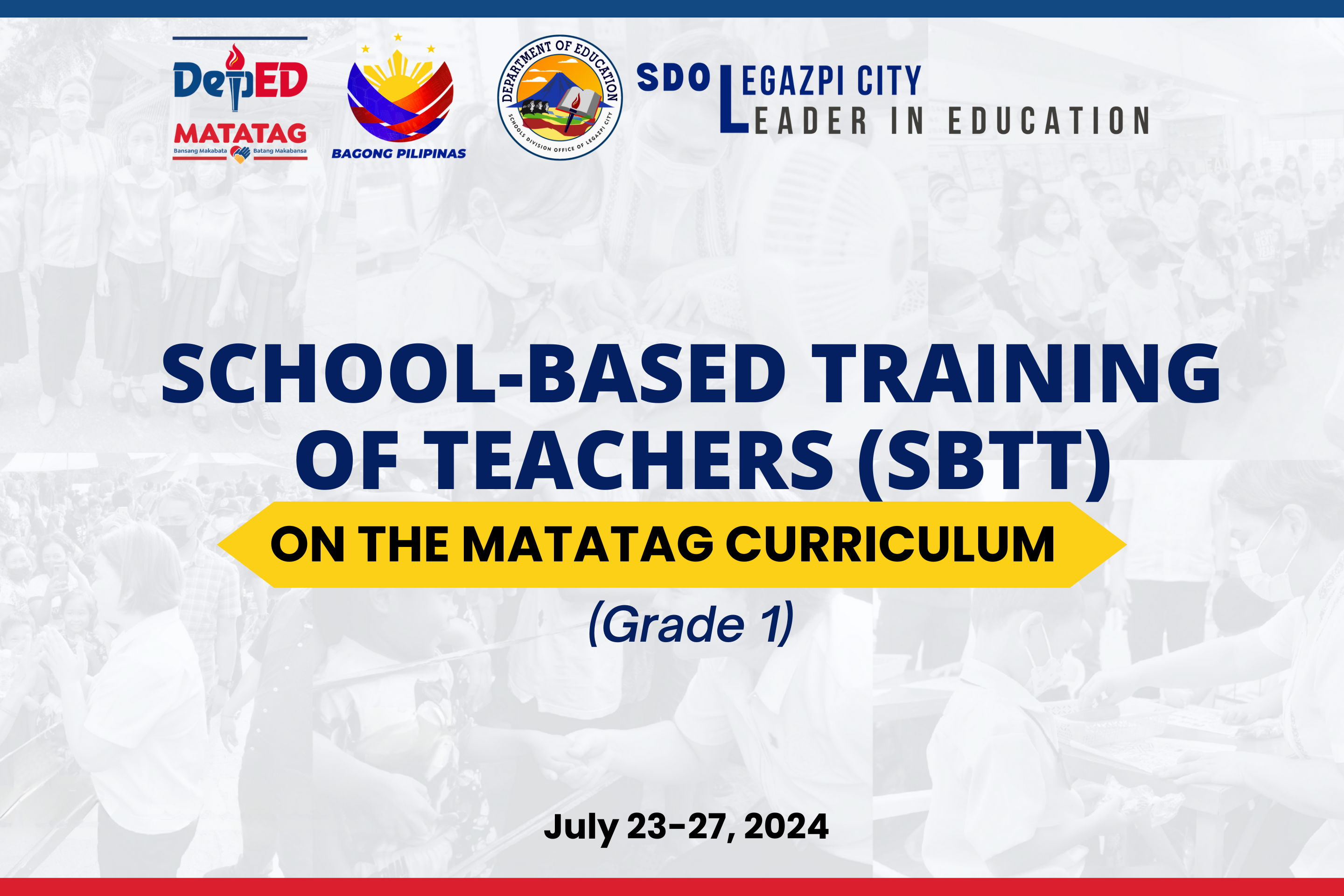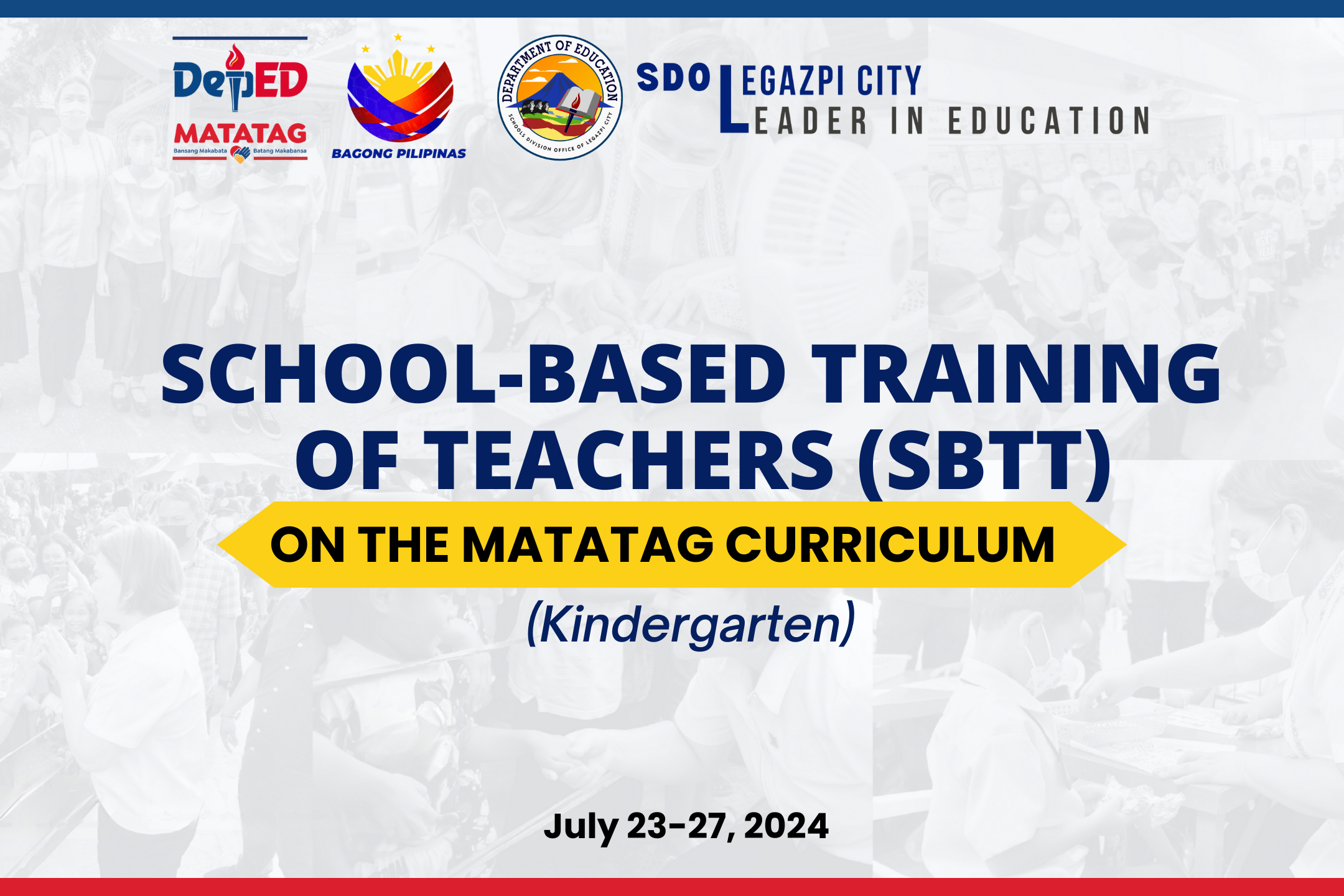Capacity Building for Career Guidance Advocates on the Implementation of Career Guidance Programs
This Capacity Building for Career Advocates on the Implementation of Career Guidance Program, as a professional development program, intends to capacitate the school guidance counselors and guidance-designates on the implementation of
the Career Guidance Program. The following are the key features of this PD program:
● Career Guidance Program Overview – this includes the current situation of Career Guidance Program in the context of basic education based on its implementation.
● Guidance: Principles, Goals, and Related Concepts – Guidance, as the heart of school, is tied to the achievement
of teaching learning goals. This feature will capacitate the career advocates in the understanding of the basic principles and other related theories.
● Career Advocacy – a program implemented by DepEd under career guidance as intermediation services for the youth to provide them relevant information that could guide them in making informed career choices.
● Developing the Career Conscious K-12 Graduate through the Delivery System – Different learning resources and materials are culled to assist in the career development of Grade 9, 10, and senior high school students.
● Career Advocates Certification – the participants will be subjected to summative assessment, which will become a basis for their certification/accreditation.
Bridging Literacy Gaps through Teacher Empowerment: A Content Development Writeshop on the Domains of Literacy for Key Stage 1
This Professional Development Program aims to strengthen early grade literacy instruction by equipping educators with research-based, contextually relevant training modules and demonstration teaching resources. Supported by key DepEd policies and grounded in the Science of Reading, the program emphasizes explicit, systematic teaching of foundational literacy skills. By the end of the writeshop, participants will have collaboratively produced instructional materials on core literacy domains to support teacher capacity-building efforts across schools and divisions.
Capability Development Module on Implementing Dynamic Learning Program (DLP) for Pilot School Teachers
The Schools Division of Legazpi City is among the ten selected pilot division offices in the Bicol region for the Dynamic Learning Program (DLP) of the Office of the Secretary of the Department of Education. Among its public schools, the Homapon High School and Maslog National High School are the pre-identified pilot schools.
To support the effective and standard implementation of the DLP in the pilot schools, the National Educators Academy of the Philippines (NEAP) enjoins the pilot division offices and schools to deliver the Capability Development Module designed to equip educators with the fundamental knowledge and practical skills for the effective implementation of the program.

Capacity Building of Core Training Faculty on the Revised K to 12 Curriculum Phase 2 Implementation
The Capacity Building of Core Training Faculty on the Revised K to 12 Curriculum Phase 2 is a professional development program for Grades 2, 3, 5, and 8 core trainers. It equips participants with the knowledge and tools to effectively lead teacher training on the revised curriculum, focusing on updated content standards, streamlined competencies, and responsive pedagogies. The program also emphasizes inclusive education, 21st-century skills, and effective assessment strategies. Through interactive sessions and hands-on workshops, participants enhance their instructional and leadership capacity. By the end, they are expected to confidently train teachers and support the successful rollout of the revised curriculum.

Training Workshop on Learning Assessment for the Development of Higher – Order Thinking Skills (Elementary)
The Training Workshop on Learning Assessment for the Development of Higher–Order Thinking Skills (HOTS) brings together educators and academic professionals in a collaborative setting to strengthen teaching and assessment practices. The primary goal of this workshop is to deepen participants’ understanding of how well-designed assessment strategies can effectively promote higher–order thinking among learners, skills that are increasingly critical in today’s dynamic and complex world.
Higher–order thinking skills, such as critical thinking, problem-solving, analysis, evaluation, and creativity, empower students to apply knowledge in meaningful, real-world contexts. With this in mind, the workshop is designed to provide participants with practical tools and evidence-based approaches to developing assessments that go beyond rote learning and foster deeper cognitive engagement.
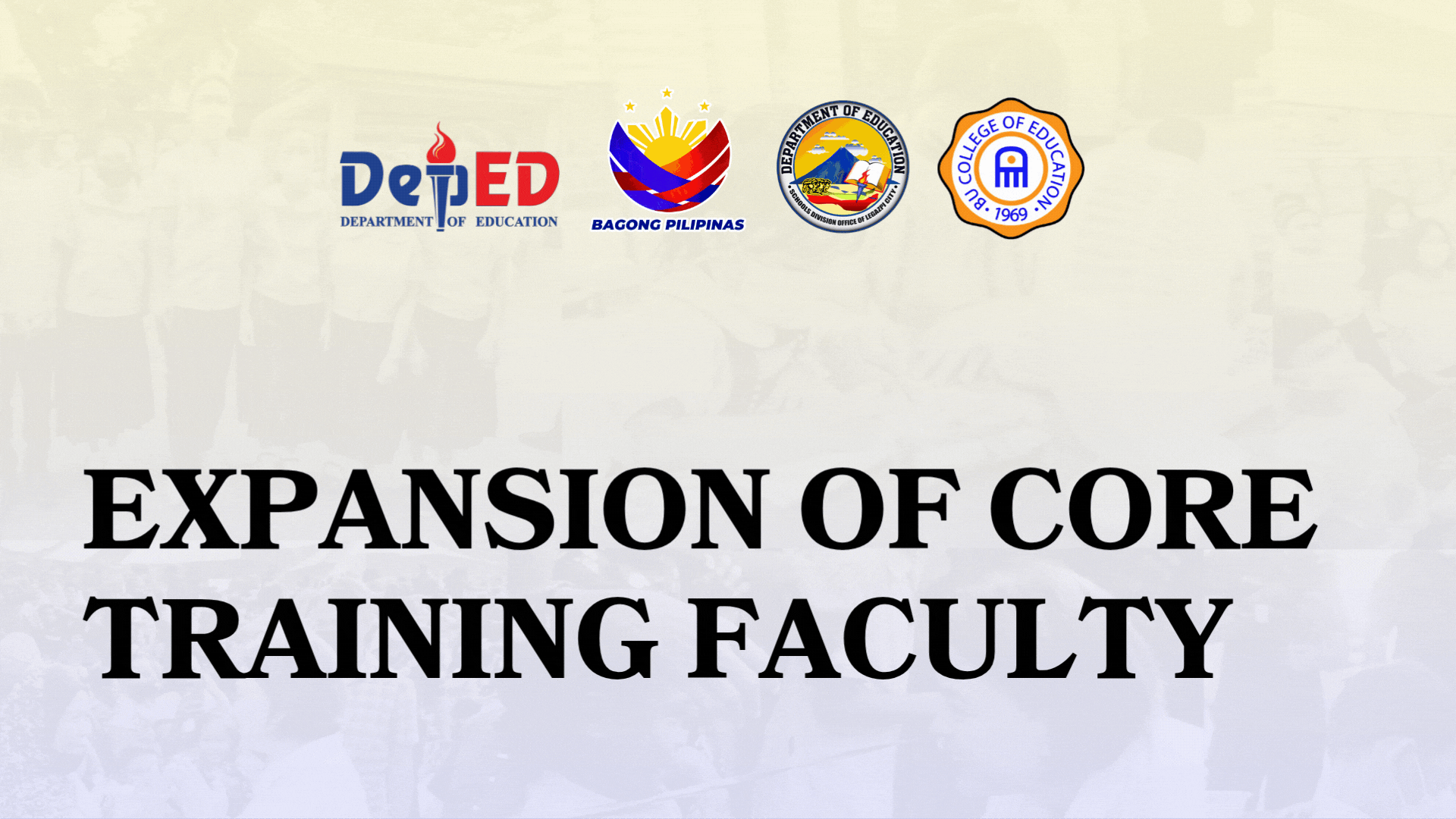
EXPANSION OF CORE TRAINING FACULTY

Training Workshop on Learning Assessment for the Development of Higher – Order Thinking Skills (Secondary)
The Training Workshop on Learning Assessment for the Development of Higher–Order Thinking Skills (HOTS) brings together educators and academic professionals in a collaborative setting to strengthen teaching and assessment practices. The primary goal of this workshop is to deepen participants’ understanding of how well-designed assessment strategies can effectively promote higher–order thinking among learners, skills that are increasingly critical in today’s dynamic and complex world.
Higher–order thinking skills, such as critical thinking, problem-solving, analysis, evaluation, and creativity, empower students to apply knowledge in meaningful, real-world contexts. With this in mind, the workshop is designed to provide participants with practical tools and evidence-based approaches to developing assessments that go beyond rote learning and foster deeper cognitive engagement.
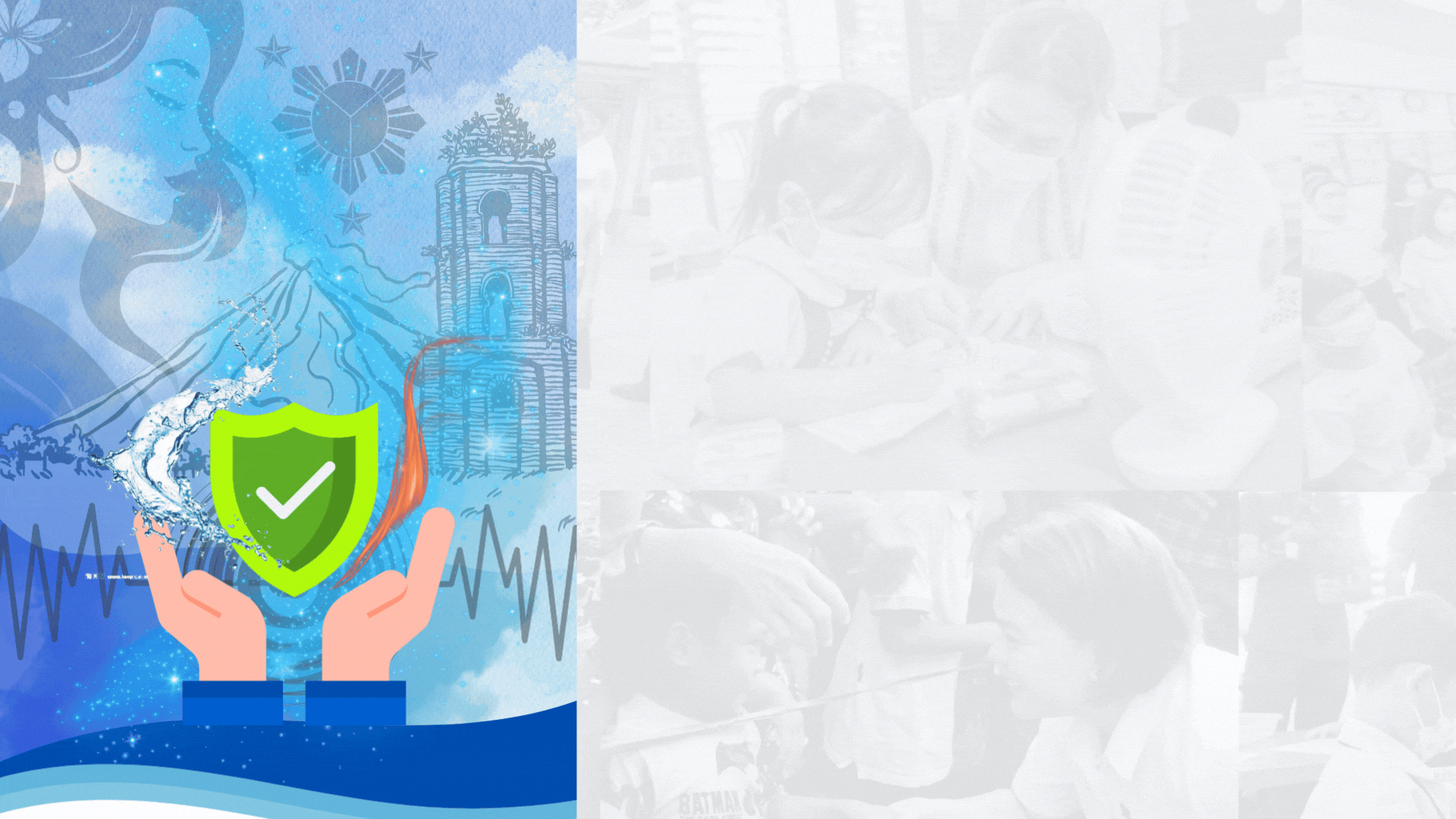
Conduct of Communicating Hazards and Risks of Volcanoes, Earthquakes Tsunamis, and Typhoon in Schools
This training workshop, titled "Communicating Hazards and Risks of Volcanoes, Earthquakes, Tsunamis, and Typhoons in Schools," is in partnership with DOST-PHIVOLCS and will be held on February 20–22, 2025, in Legazpi City. It aims to equip participants with knowledge of disaster risk reduction and management (DRRM), focusing on school preparedness for natural hazards. The training will cover DRRM laws, PHIVOLCS tools, hazard mapping, disaster response planning, and hands-on activities like school watching and evacuation drills. It also emphasizes collaborative risk awareness and integrating PHIVOLCS materials into school frameworks.

Science: Beyond the Lab - Navigating Science Misconceptions (A Teacher's Guide to Precision in the Classroom)
Welcome to "Science: Beyond the Lab - Navigating Science Misconceptions," a comprehensive training designed specifically for science teachers. This guide is crafted to empower educators with the tools and strategies needed to address and correct common misconceptions in the classroom. Through this training, you'll gain insights into the origins of these misconceptions, learn effective communication techniques, and explore hands-on activities to foster a deeper understanding of scientific concepts among students. Join us in enhancing your teaching toolkit and ensuring precision in the delivery of science education.

Division Workshop on the Development of Supplementary Reading Materials
The three-day workshop shall have the following objectives:
a. develop children’s storybooks as Supplementary Reading Materials for Key Stages 1&2 Learners in support to Learning Recovery Program (LRP);
b. quality assure the developed children’s storybooks; and
c. provide the learners of quality Supplementary Reading Materials (SRMs) that would improve Reading Fluency, Reading and Listening Comprehension of Key Stages 1&2 Learners.
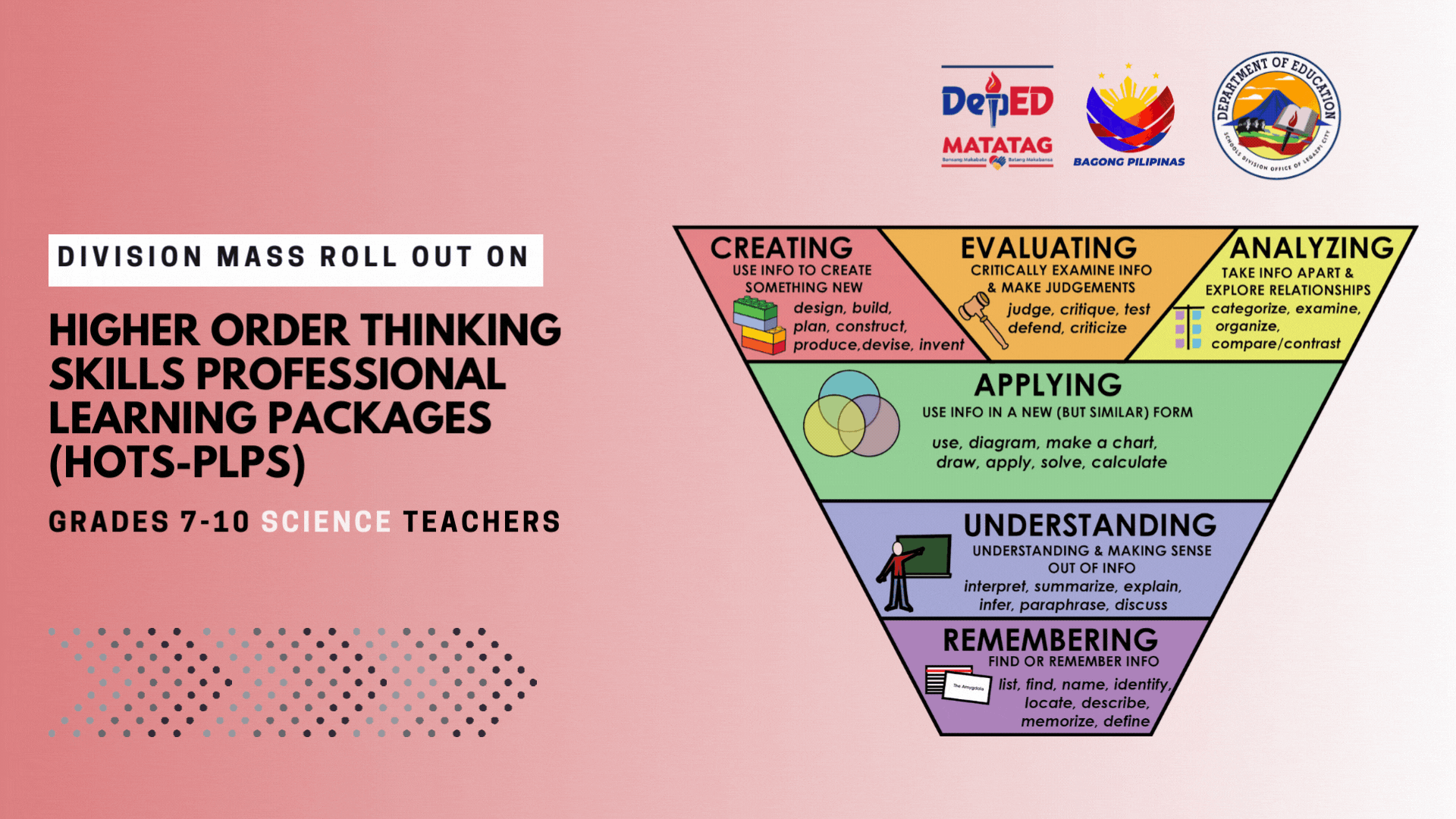
Division Mass Roll Out On Higher Order Thinking Skills Professional Learning Packages (HOTS-PLPs) For Grades 7-10 Science Teachers
The program aims to:
a. support the teachers in understanding HOTS and in reflecting these skills in their respective classroom practices through the development of HOTS items/ questions for Science, Mathematics and English/Reading subjects;
b. help the teachers in performing pedagogy and assessment practices that promote HOTS; and
c. develop guide materials intended for master teachers, school heads, and supervisors to support them in their mentoring roles in schools with a focus on helping teachers.
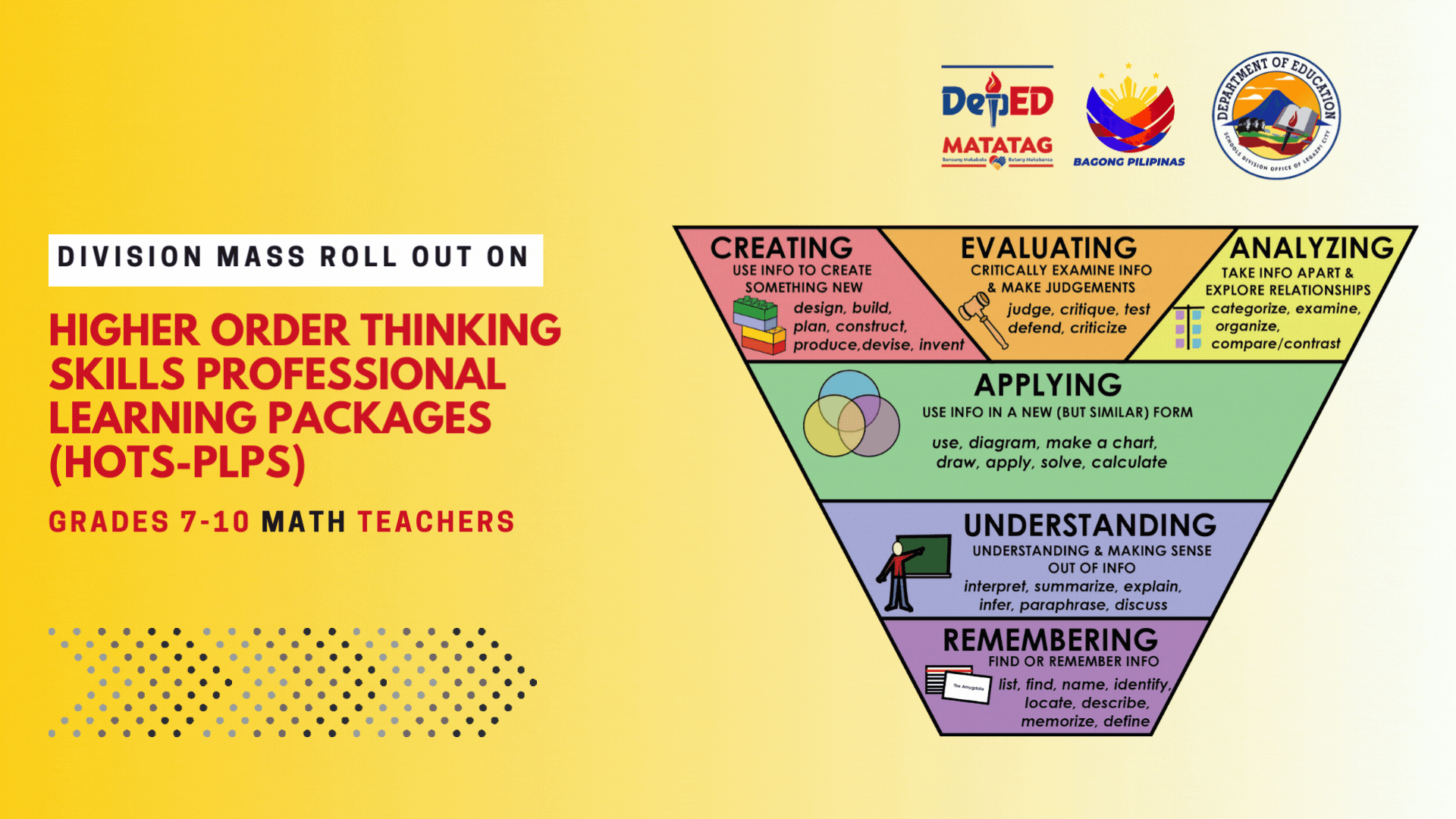
Division Mass Roll Out On Higher Order Thinking Skills Professional Learning Packages (HOTS-PLPs) For Grades 7-10 Math Teachers
The program aims to:
a. support the teachers in understanding HOTS and in reflecting these skills in their respective classroom practices through the development of HOTS items/ questions for Science, Mathematics and English/Reading subjects;
b. help the teachers in performing pedagogy and assessment practices that promote HOTS; and
c. develop guide materials intended for master teachers, school heads, and supervisors to support them in their mentoring roles in schools with a focus on helping teachers.
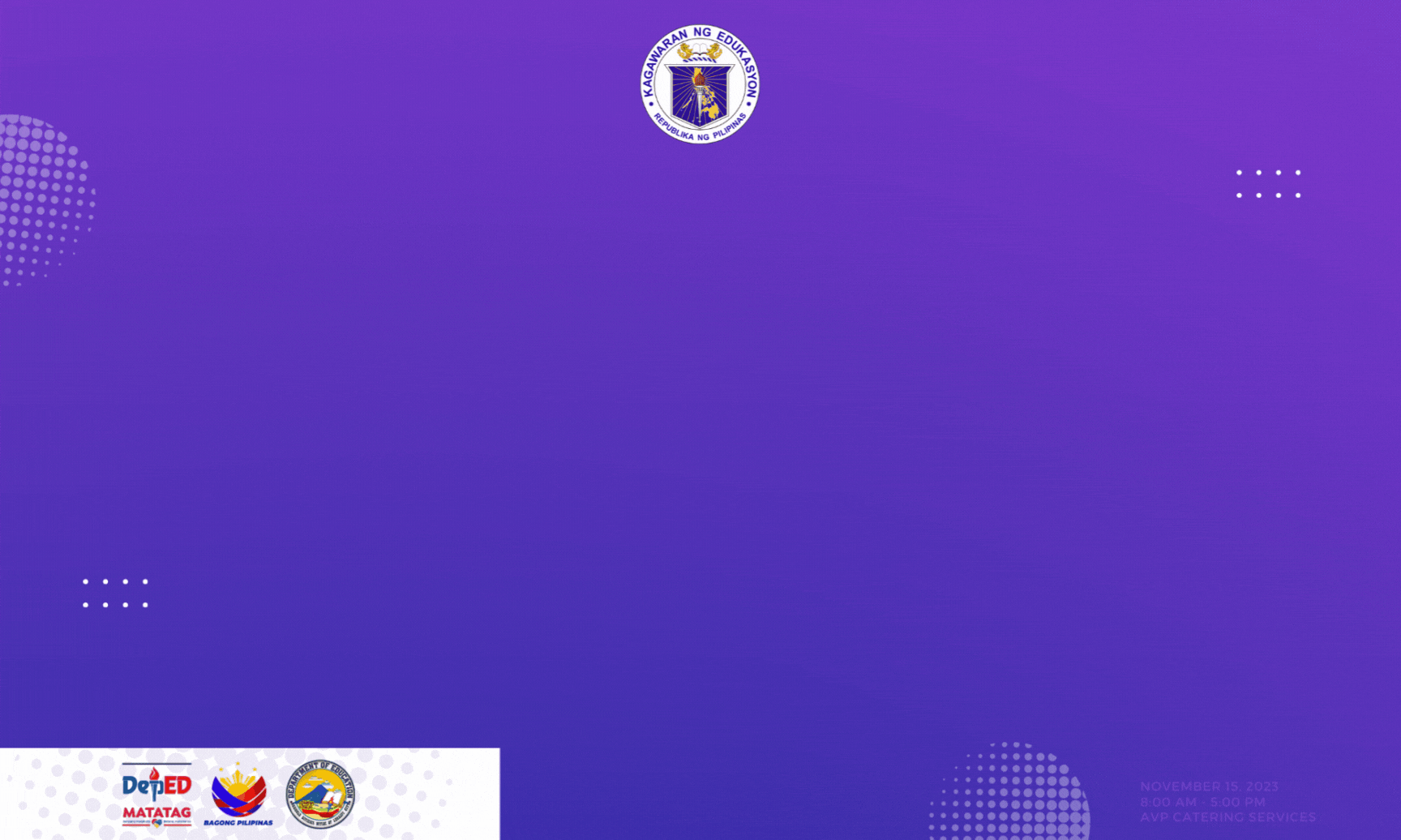
Division Workshop on the Inventory of Learning Resources and Monitoring and Evaluation of LR Processes
The following objectives are expected to be attained:
a. identify and account for every learning resource available in all the schools of the DepEd SDO Legazpi City,
b. categorize each learning resource by type, learning area and grade level and input these pertinent data in the online LRMIS Database for proper monitoring and inventory and,
c. analyze and identify areas of learning resource needs using the system generated charts and graphs of the prevailing LR's in each school, by district and for the Division Office as a whole.

Division Mass Roll Out On Higher Order Thinking Skills Professional Learning Packages (HOTS-PLPs) For Grades 7-10 English Teachers
The program aims to:
a. support the teachers in understanding HOTS and in reflecting these skills in their respective classroom practices through the development of HOTS items/ questions for Science, Mathematics and English/Reading subjects;
b. help the teachers in performing pedagogy and assessment practices that promote HOTS; and
c. develop guide materials intended for master teachers, school heads, and supervisors to support them in their mentoring roles in schools with a focus on helping teachers.


